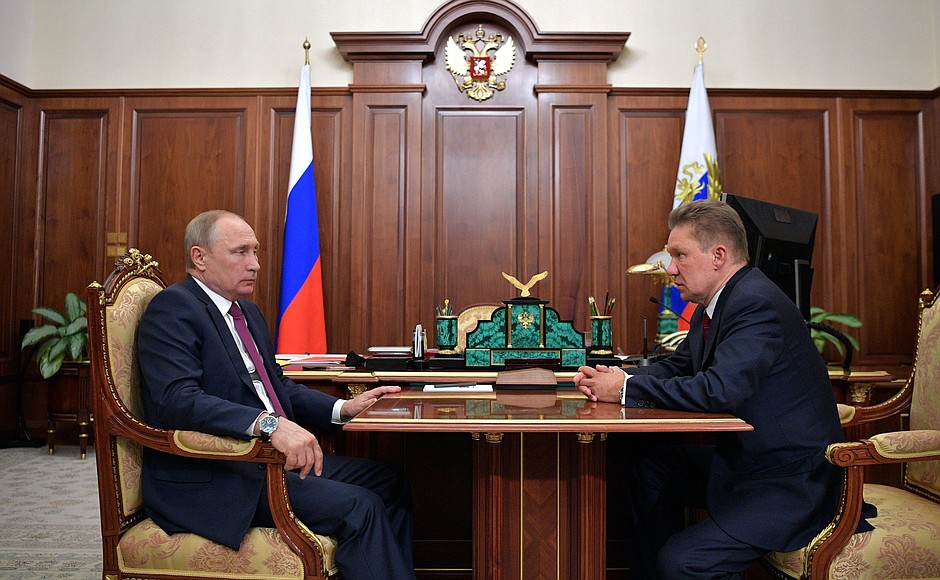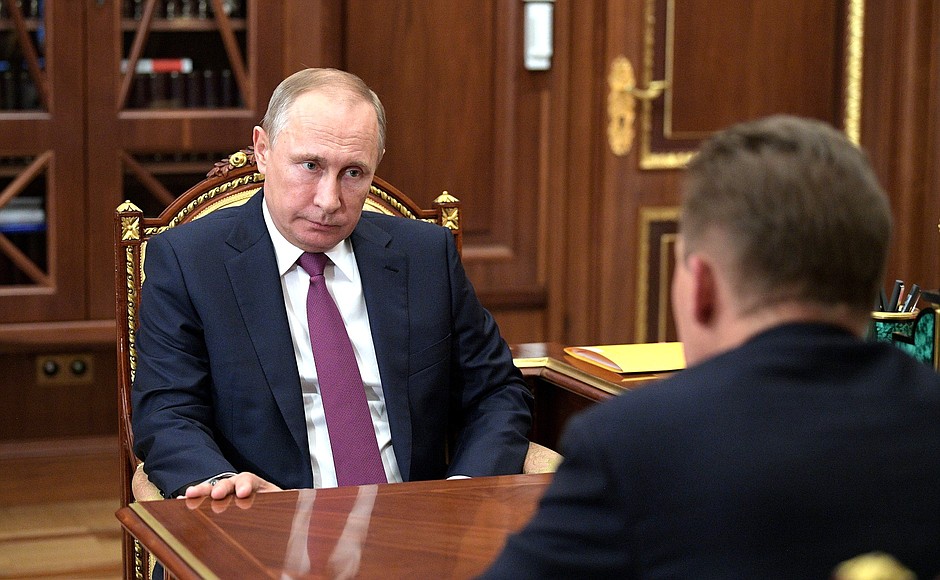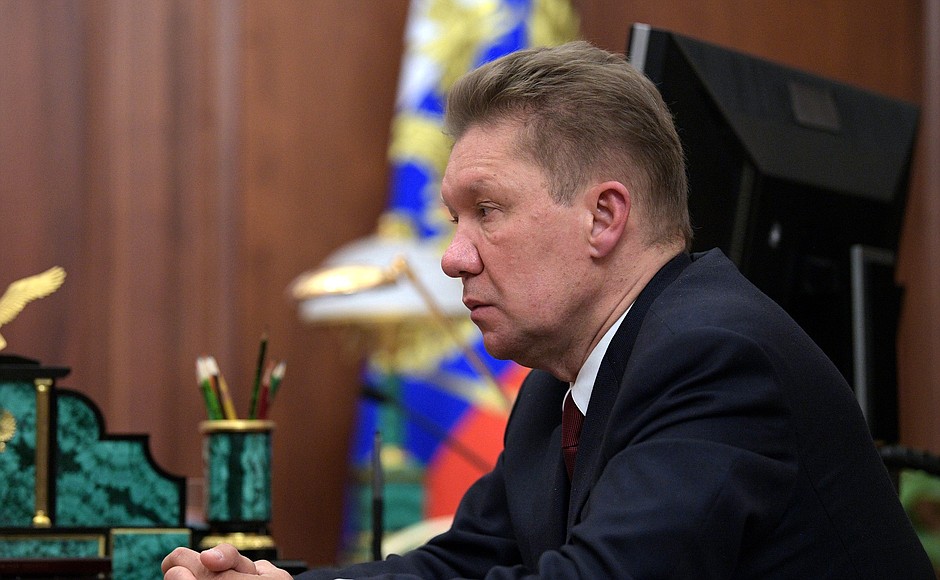President of Russia Vladimir Putin: Mr Miller, let’s discuss the company’s performance so far this year.
The second issue is connected to Direct Line: There are a lot of problems related to provision of gas supply. These are traditional problems that people raise in the course of Direct Line, and we do not just discuss these things. I know that you have proposed specific solutions together with the regions: Gazprom cannot deal with this on its own, without the regions. Nevertheless, I would like to revisit the matter.
Chairman of Gazprom Management Board Alexei Miller: Mr President, in the first six months of 2017 Gazprom increased production by 36.2 billion cubic metres, year on year, or by 18.4 percent. This is related to growing gas consumption on the domestic market and it is noteworthy. Household gas consumption was up 4.6 percent; consumption in the power engineering sector, 9.5 percent; the agro-chemistry, 20.6 percent; metallurgy, 28.2 percent; total average growth, 11.2 billion or 9.7 percent. This clearly points to economic growth in these sectors.
Growing gas consumption in the household sector shows that issues related to provision of gas supply are, without a doubt, very important and significant and Gazprom continues implementing the programme to provide gas supply that we launched in keeping with your instruction in mid-2005.
This year, we are implementing the programme in 68 regions; 25.7 billion rubles have been disbursed. A total of 3,700 km of gas pipelines are under construction as part of this programme. This year, 1,700 km will be put into operation in 31 regions; 160 gas boilers will be built and 75,800 flats and households will be provided with gas services; pipeline gas will be provided to over 200 localities.
There are problems with some regions. We have 19 regions that regularly fail to fulfil the commitments they assumed under the scheduled synchronisation plans that we sign with them every year.
Vladimir Putin: They do not get it to the end consumer?
Alexei Miller: Right, after all, Gazprom is responsible for providing gas to the edge of a settlement. As for the distribution system in the settlement or within the building, or preparations for users to be connected, this is certainly the responsibility of the regions.
Based on the results of the past six months, Gazprom will have to consider how to redistribute funds in those regions that did not fulfil their commitments in the first half of the year and allocate additional funds to those regions that complied with their obligations.
On average, by the beginning of 2017 provision of gas supply reached 67.2 percent nationwide, 70.9 percent in cities and urban settlements and 57.1 percent in rural areas.
The amount of investment we allocate is bringing less and less gain every year because gas has to be supplied to more remote areas. However, I would like to point out that in 2017 we allocated considerable funds to regions like the Primorye Territory, considering the national policy on accelerated development of the Far East. Today the Primorye Territory is the biggest recipient of investment under the gas infrastructure development programme.
I would also like to note that we have established a good working dialogue with those regions that are led by new governors, acting governors. I would like to mention the Yaroslavl Region. We had a working meeting with the governor in Yaroslavl and mapped out very serious plans on provision of gas supply in the region.
Naturally, Eastern Siberia is now playing a tangible role in our programme. I would also like to mention the Novosibirsk Region. We are allocating substantial funds to them. And I would also like to mention the Northwest – Karelia.
Probably, I should also mention a number of regions that regularly fail to comply with their commitments for various reasons. This applies to Daghestan and, regrettably, the Volgograd Region. These are the regions that chronically lag behind the obligations they assumed.
Gazprom is funding the programme in a consistent manner. In the first half of the year we earmarked exactly half of the funds that were provided for the programme. We plan to start service at all facilities by the beginning of the 2017–2018 autumn-winter season.
<…>


